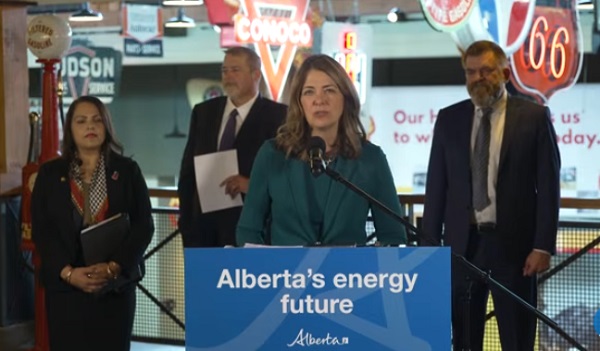Business
World Economic Forum Aims to Repair Relations with Schwab

The whistleblower has always been anonymous, and it remains very suspicious that the very organization he created would turn on him after receiving an anonymous letter that they admitted may not have been credible.
World Economic Forum founder Klaus Schwab stepped down from his chairman position at the organization on April 20, 2025, amid accusations of fraud. Our computer had forecast that the WEF would enter a declining trend with the 2024 ECM turning point. This staged coup happened about 37 years after the first Davos meeting (8.6 x 4.3). From our model’s perspective, this was right on time. Now, Schwab and the WEF are working to repair ties.
An anonymous whistleblower claimed that Klaus Schwab and his wife collaborated with USAID to steal tens of millions in funding. The whistleblower has always been anonymous, and it remains very suspicious that the very organization he created would turn on him after receiving an anonymous letter that they admitted may not have been credible. Something like this would never be acceptable in any court of law, especially if it’s anonymous. It would be the worst or the worst hearsay, where you cannot even point to who made the allegation.
Back in April, the WEF said its board unanimously supported the decision to initiate an independent investigation “following a whistleblower letter containing allegations against former Chairman Klaus Schwab. This decision was made after consultation with external legal counsel.”
Now, the WEF is attempting to repair its relationship with its founder ahead of the next Davos meeting. Bloomberg reported that the WEF would like to “normalize their relationship [with Klaus Schwab] in order to safeguard the forum and the legacy of the founder.”
Peter Brabeck-Letmathe has replaced Schwab for the time being, but is less of a commanding force. Schwab’s sudden departure has caused instability in the organization and its ongoing mission. Board members are concerned that support for the organization will begin to decline as this situation remains unresolved.
The World Economic Forum’s annual revenue in 2024 was 440 million francs ($543 million), with the majority of proceeds coming from member companies and fees. Yet, the number of people registered to attend the 2025 Davos event is on par if not slightly exceeding the number of participants from the year prior.
Schwab’s departure has damaged the Davos brand. There is a possibility that the organization is attempted to rebrand after Agenda 2030 failed. The WEF attempted to move away from its zero tolerance stance on ESG initiatives after they became widely unpopular among the big industry players and shifting governments. The brand has attempted to integrate the importance of digital transformation and AI to remain relevant as the tech gurus grow in power and popularity. Those who are familiar with Klaus Schwab know the phrase, “You will own nothing and be happy.” These words have been widely unpopular and caused a type of sinister chaos to surround the brand that was once respected as the high-brow institution of globalist elites.
European Central Bank President Christine Lagarde was slated to replace Schwab in 2027 when her term ends, and all reports claimed that he was prepared to remain in the chairman role for an additional two years to ensure Lagarde could take his place. What changed seemingly overnight that would cause the organization to discard Schwab before he was due to retire?
Schwab denies any misconduct and filed lawsuits against the whistleblowers, calling the accusations “calumnious” and “unfounded.” He believes “character assassination” was the premise of the claims.
I am no fan of Klaus Schwab, as everyone knows. I disagree with his theories from start to finish. Nevertheless, something doesn’t smell right here. This appears to be an internal coup, perhaps to distract attention from the question of alleged funds for the WEF from USAID, or to try to salvage the failed Agenda 2030. Perhaps they will claim that no misconduct had occurred since DOGE did not raise concerns or there is a possibility that those behind the internal coup are concerned that Schwab’s counter lawsuit could uncover new corruption. The investigation into Schwab has not concluded, but after only three months, the WEF would like to wrap it up. It appears that the WEF does not want to welcome Schwab back; rather, they would like to ensure an amicable resolution to maintain both the brand’s reputation as well as the founder’s.
Alberta
Ottawa’s Firearms Buyback Plan: Federal Government Puts Provincial Authority In Its Sights

From the Frontier Centre for Public Policy
It’s about politics and provinces are right to refuse to play along
Federal Public Safety Minister Gary Anandasangaree’s leaked admission that Ottawa’s firearms buyback is unenforceable was no slip. It exposed the way federal power is deployed for partisan gain while provinces are left to pay the bill.
The leak matters because it exposes a pattern, not an exception. Ottawa drafts policies to suit its politics and expects provinces to carry the weight. Police budgets, university research chairs, hospital systems and housing markets are treated as levers to be pulled from Ottawa. The effects are felt locally, but the decisions are made elsewhere.
Consider the pattern. The Online Harms Act, rejected more than once, is introduced yet again, as if repetition can substitute for consent. Health care dollars are tied to federal strings that reorder provincial systems with no regard for local capacity. Immigration quotas climb at a pace provinces cannot house or school. Environmental rules descend without negotiation, upending years of co-operative planning. Each measure arrives as an edict. Consultation is reduced to announcement.
Resistance has already begun. Saskatchewan moved early, adopting legislation that makes any federal confiscation program subject to provincial authority, including RCMP operations. In Alberta, Premier Danielle Smith has gone further, declaring flatly: “We will not allow police in Alberta to confiscate previously legal firearms. I have directed two of my ministers to relentlessly defend Albertans’ right to lawful and safe possession of firearms and the right to self-defence.”
Even before the introduction of the Sovereignty Act, Tyler Shandro, then Alberta’s justice minister, announced that the province would not use its police or prosecutors to carry out confiscations. Although former premier Jason Kenney opposed a Sovereignty Act, his government likewise refused to act as Ottawa’s enforcer.
Alberta and Saskatchewan have since given themselves legislative tools, Sovereignty Acts, which assert the right of provinces to decline enforcement of federal laws they judge unconstitutional. These statutes formalize existing constitutional powers. Provinces without Sovereignty Acts have also drawn lines. Ontario has signalled its refusal to help enforce Ottawa’s firearms program.
These positions are lawful, rooted in the Constitution’s division of powers, which assigns the administration of justice and policing to the provinces.
This clarity ought to attract others. Manitoba, with one of the highest proportions of licensed hunters in the country, has strong reason to resist Ottawa’s targeting of lawful gun owners. Communities are not made safer by seizing deer rifles from responsible hunters, nor are public services improved by diverting scarce provincial resources into a program that federal ministers concede will not work. Manitoba would do well to follow Alberta and Saskatchewan in defending its jurisdiction, whether through a Sovereignty Act or by refusing to play Ottawa’s game.
The point is practical. Prairie provinces cannot spare rural detachments to seize hunters’ rifles because the Liberal caucus fears losing seats in Montreal. They cannot put their power grids at risk to meet Ottawa’s timelines while households absorb higher bills. Universities cannot be turned into federal policy pilot projects. Provinces exist to govern their own communities, not to absorb the fallout of federal experiments.
The genius of federalism lies in the division of authority, which encourages compromise and minimizes tyrannical imposition. Ottawa governs in its sphere, provinces in theirs. Where the two overlap, cooperation must be negotiated, not imposed. Sovereignty Acts sharpen that principle. They remind Ottawa that partnership is earned, not dictated.
What Anandasangaree’s admission exposed was not only the cynicism of one firearms program. It revealed a method of governing: federal power deployed for partisan gain, with provinces reduced to instruments. That cannot endure. Canada was never meant to be a chain of command. It was built as a contract—one that requires respect for provincial authority.
Provinces that refuse to carry out Ottawa’s politically motivated projects are not weakening Canada; they are enforcing its terms.
Marco Navarro-Genie is vice-president of research at the Frontier Centre for Public Policy and co-author, with Barry Cooper, of Canada’s COVID: The Story of a Pandemic Moral Panic (2023).
Business
Canada’s health-care system is not ‘free’—and we’re not getting good value for our money

From the Fraser Institute
By Nadeem Esmail and Mackenzie Moir
In 2025, many Canadians still talk about our “free” health-care system. But in reality, through taxes, we pay a lot for health care. In fact, according to the latest data, a typical Canadian family will pay $19,060 (or about 24 per cent of their total tax bill) for health care this year.
Given the size of that bill, it’s worth asking—do Canadians get good value for all those tax dollars? Not even close.
First, Canadians endure some of the longest wait times for medical care—including primary care, specialist consultations and non-emergency surgery—among developed countries with universal health care. In fact, the wait in Canada for non-emergency care is now more than seven months from referral to treatment, which is more than three times longer than in 1993 when wait times were first measured nationally.
Why the delays?
Part of the reason is the limited number of medical resources available to Canadians. Compared to our universal health-care peers, Canada had some of the fewest physicians, hospital beds and medical technologies such as MRI machines and CT scanners.
And before you wonder if $19,000 per year isn’t enough money for world-class universal coverage, remember that Canada has one of the most expensive universal health-care systems in the developed world, which means Canadians are among the highest spenders on universal health care yet have some of the worst access to health-care services.
Fortunately, countries such as Switzerland and Australia, which both provide far more timely access to high-quality universal care for similar or even lower cost than Canada, offer lessons for reform. Compared to Canada, both countries allow a larger degree of private-sector involvement and, perhaps more importantly, competition in their universal health-care systems.
In Switzerland, for instance, health insurance coverage is mandatory and provided by independent insurers that compete in a regulated market. Swiss citizens freely choose between insurers (which must accept all applicants) and can even personalize some aspects of their universal insurance policy. Patients also have a choice of hospitals, more than half of which are operated privately and for-profit.
In Australia, citizens can purchase private insurance, which covers the cost of treatment in private hospitals. Higher income Australians are actively encouraged to purchase private health insurance and even have to pay additional taxes if they do not. Some 39 per cent of hospitals in Australia are private and for-profit, providing care to both privately and publicly insured patients.
Vitally, competition between private health-care businesses and entrepreneurs in both countries (and many others including Germany and the Netherlands) has helped create a more cost-effective and accessible universal health-care system. Back here in Canada, the lack of private-sector efficiency, innovation and patient-focus has led to the opposite—namely, long waits and poor access.
Health care in Canada is not free. It comes with a substantial price tag through our tax system. And the size of that bill leaves less money for savings and other things families need.
Getting better value for our health-care tax dollars, and solving the longstanding access problems patients face, requires policy reform with a more contemporary understanding of how to structure a truly world-class universal health-care system. Until that reform happens, Canadians will continue to be stuck with a big bill for lousy access to health care.
-

 Alberta22 hours ago
Alberta22 hours agoWith no company willing to spearhead a new pipeline under federal restrictions, Alberta takes the lead
-

 National1 day ago
National1 day agoCanada’s birth rate plummets to an all-time low
-

 Alberta2 days ago
Alberta2 days ago$150 a week from the Province to help families with students 12 and under if teachers go on strike next week
-

 espionage1 day ago
espionage1 day agoNorth Americans are becoming numb to surveillance.
-

 Alberta21 hours ago
Alberta21 hours agoHalfway River First Nation makes history with Montney natural gas development deal
-

 Crime1 day ago
Crime1 day agoPierre Poilievre says Christians may be ‘number one’ target of hate violence in Canada
-

 Business23 hours ago
Business23 hours agoElon Musk announces ‘Grokipedia’ project after Tucker Carlson highlights Wikipedia bias
-

 Alberta22 hours ago
Alberta22 hours agoTaxpayers: Alberta must scrap its industrial carbon tax







